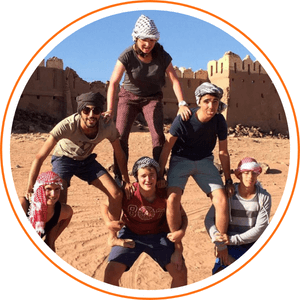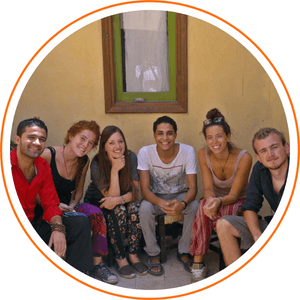Which Arabic courses to choose?

Know which Arabic courses to choose
Many students have questions about which Arabic courses to choose when they start their studies. The first big decision they will have to make is if they should study Modern Standard Arabic (MSA) or start with colloquial Arabic instead.
To shed some light on the matter, let’s summarize the main differences between the two options:
Modern Standard Arabic (MSA) vs. Colloquial Arabic: What to study?
Modern Standard Arabic
It is also known as al-fusha. This language is widely used in the Arab world because of its multiple applications in different fields: for example, in the media, in education, in diplomacy and it can also be used in formal situations. It can be an interesting way to expand your resume and therefore your career possibilities.
However, one must bear in mind that it is not always the best option when one wants to have a colloquial conversation in Arab countries. The local and regional dialects may be the most appropriate in this case.
These are the 2 main advantages of choosing Modern Standard Arabic:
- A good basis for learning: in case we want to learn some dialect in the future, starting with Modern Standard Arabic is a good option. The student will have a solid base from which to start in this language.
- Understanding: Another advantage of learning this type of Arabic is that we will make ourselves understood in any country, unlike what will happen if we limit ourselves to a specific dialect. In any Arab country to which we decide to travel we will be able to be understood.

Colloquial Arabic
This is the Arabic language with the regional variations we find in each country, such as in Jordan, Egypt and Morocco, or in specific areas of each country.
Egyptian Arabic is perhaps the best known in the world due to the influence of film and television. It is divided into two varieties, that of Lower Egypt and Upper Egypt, also called “Saidi“.
Jordanian Arabic is influenced by other languages such as English, French and Turkish. Although it is well understood in almost all the country, it presents great variations in some regions that can be significant: The Urban, the Rural and the Bedouin.
In Morocco we find a peculiar dialect also known as Darija (dāriŷa). An interesting feature of Moroccan Colloquial Arabic is that it is taught using both Arabic and Latin characters, as the student prefers.
Therefore, the words we will learn in colloquial Arabic derive directly from Modern Standard Arabic, with a partial influence by other languages such as English, Spanish, French, and Berber, among others.
Do you want to know more about our Arabic courses?
Which of the two courses should I choose?
You already know the characteristics of the 2 types of courses: in the case of beginners, even if it is the first time that we dare tackle this language, the best recommendation is to opt for Modern Standard Arabic, since the learning curve will be easier to attain. In addition, remember it has the advantage that with this language we will be able to make ourselves understood in any country where Arabic is spoken.
The choice of colloquial Arabic is interesting in case we have already studied the language and have a more solid base of knowledge. Also if we have to travel to some of the countries where it is spoken for work or studies.
With all this information, it should be easy for you to make a decision about which modality you are most interested in studying.


On-site Arabic courses
You also have to possibility of taking Arabic courses on-site. In addition to classes with highly skilled teachers, these course provide a variety of activities that give students the chance to interact with native Arabic speakers and practice their Arabic in a comfortable and natural setting.
Here are the options:
Arabic Schools Abroad
A unique chance to fully immerse yourself in the Arabic language is taking an Arabic courses abroad. It enables you to advance far more quickly with the language than you would at home. We have some Arabic schools abroad in Egypt, Jordan and Rabat.
Arabic schools in Egypt: Cairo, Alexandria and Luxor
Middle Eastern enthusiasts have long made our Arabic schools in Egypt their preferred location. As the “Mother of the World,” this region is rich in culture and history. Come learn Arabic at our school and you’ll see that Egypt is a really affordable option—you could ride the tram 25 times for just one Euro! Despite its size, Egypt has heavy traffic and crowded areas that some people may find overwhelming. Egyptians are also quite friendly, and some of them become really enthusiastic when they encounter foreigners. This may be entertaining or annoying at times (for those who prefer a walk home in peace and quiet).

Arabic school in Jordan: Amman
Jordan is among our best known Arabic schools, and there are many good reasons for this. First off, because the dialect in Jordan is so similar to Modern Standard Arabic (MSA), students with knowledge of MSA will be able to adapt to the dialect more rapidly than they could in other nations. The Levantine dialects (Syrian, Lebanese, and Palestinian) are highly close to one another and are commonly understood by Arabs, making the Jordanian dialect a valuable one to learn as well. The capital of Jordan, Amman, is a pleasant and simple city to travel around and spend time in, but it is also the most costly alternative. Along with a variety of cafés, restaurants, and retail stores, downtown markets provide a variety of historic locations to explore. You will be able to take several travels outside of Amman in addition to attending our Arabic school there, since nothing is too far away in this tiny nation. Favorite locations include Wadi Rum, Petra, the Dead Sea, and hiking through the numerous wadis (valleys).
Arabic school in Rabat: Morocco
The Arabic school in Morocco, provides access to the lively culture of the Arab West. Morocco is a sizable, secure, and stunning nation with a variety of landscapes, including beaches, mountains, deserts, and ancient cities. Although not as inexpensive as Egypt, Morocco has substantially lower living expenses than Jordan.








